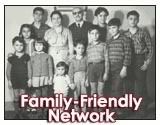Sunday, May 20, 2007
Finding Your Voice
One of the biggest problems for writers is finding their own voice. Part of the problem is that for the most part we feel like we are nobodies in the writing world, beginners. No one will want to read what we write, so we try to write like someone else, instead of using our own voice. Which brings up a very important question. How
do we find our own voice? Remember all the rules we learned in school? Write complete sentences, never end a sentence with a proposition. Use synonyms for "said" like screamed, shouted, whispered, croaked, growled. Well, the trouble with these rules is
that they don't work in real writing. I'm not saying forget all the rules. Some of them are important, but some of them are not. A careful reading of your work will show you what works. Trust your own instincts.
Listen to the way you talk, to the way others talk. How many incomplete sentences do you hear? How many times do you end a sentence with a preposition? We don't speak proper English, and the characters in your book shouldn't either.
Don't imitate. Read other writers to learn how they handle dialogue, scenes, suspense, but never try to imitate their style. Imitation may be a form of flattery, but it won't get you published. Your writing should sound like you. I once created a sarcastic, smart-mouthed older woman and everyone who read it said, "That's Barbara."
Evidently my voice was coming through just fine. Remember, the publishing world isn't looking for another John Grisham, or a new Patricia Cornwell. They want someone who doesn't sound like everyone else. Let your personality show through your writing.
Don't try to be everything to everyone. Some people love Dean Koontz or Stephen King. Others wouldn't read these writers unless you paid them. You can't please everyone. Most of us have a public voice and a private voice. The public voice is cleaned up, prettied up, safe. When we write with our public voice, it may sound good, but it
isn't us. Our private voice is more personal, intense, emotional, less controlled, our tell it like it is voice. Forget the safe, proper public voice and write it the way you feel. When you try to be everything to everyone, you end up being nothing to nobody.
Write the way you talk. Even more important, write the way you think. And don't try to be politically correct. Politically correctness is censorship. It will result in bland, boring writing. You don't have to be offensive, but don't adopt a style that isn't your own voice, either, just to meet someone's list of rules. However, a word of advice. Remember not all of your readers have the same opinions you have. Leave your politics out of writing. Don't cram your opinions down your reader's throat, and expect him to come back for more.
Find your own method of plotting and writing. I've tried plotting methods from the writing books, and ended up with a confused mess. I've found a method that works for me. I outline the first half of the manuscript. Then when I have the story going I outline the rest. I print each chapter as I finish it and then read it over and correct it that night. And I read the entire manuscript over and over until it's the best I can make it before I submit it. That's what I do. But that doesn't mean you have to do the same. We each have a different personality, a different way of doing things. Don't get hung up on what the writing books say. Read them, and then use what
works for you.
Don't talk down to your reader. Your reader won't be like most of the people you know. Most of the people I know don't read much. My readers are people like me. They read what I read, like what I like. They probably know as much or more than I do. It's insulting to explain everything to them, as if they aren't smart enough to figure it out for themselves. Tell them what they need to know, and turn them loose. Don't start with back story either. Start out with your main character doing something, and expect the reader to catch on. (Don't be so vague no one could understand what's going on, but don't feel you have to explain every little detail either)
Make sure your dialogue stays in character and moves the story forward. Spend a little time getting acquainted with your characters before you ever start to write. Get to know them. Who are you when you write? Are you the little girl lost in the park? Or are you the woman thinking of having an affair with her boss? Are you the
kid working in a go-nowhere job and dreaming of something more exciting? Know your characters so well you can speak through them the way no one else could. And make your characters sympathetic. I read a lot of manuscripts where the character is hateful, sarcastic, or unsympathetic. When I point this out, the writer will say, "but she changes later in the book. The trouble is, your reader may not be
around that long. Write characters you like, even your villains. Characters you can understand and identify with. Then you can let them be the kind of characters you have created, but still be true to your voice. No matter what genre in which you write, always know your characters. Then we'll hear your voice.
I know I've said, write for your reader, but one way to do that and remain true to your own voice is to write for yourself. Write what interests you, and you'll interest others. It's hard to write with passion if you don't feel passionate, and we are only passionate if we care. Only if we care enough will our voice show in
our writing. If your writing reads like someone else (or everyone else) wrote it, then it's not your true voice. There will always be a writer who can write funnier than you can, a better romance writer or western writer. The one thing no one else can do is put your personality on the page. That's what makes you special and that's
what moves you closer to being published. Don't imitate. Create. And don't try to be like someone else. Just be yourself. Write the way you feel, the way you think and talk. That's your true voice.








































